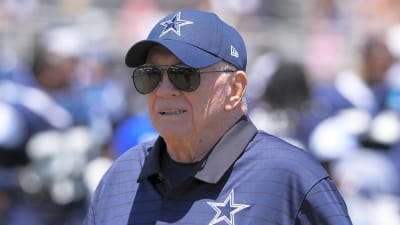
Aryna Sabalenka’s path to the US Open title was far from straightforward, and tennis analyst Rennae Stubbs wasn’t shy about admitting her initial doubts. “I did not pick Sabalenka to win this tournament. She was not playing great coming into it,” Stubbs revealed during a recent podcast.
Watching Sabalenka in practice, the former coach of Serena Williams noted she was missing balls by 20 feet and sometimes even hitting the bottom of the net. “I spoke about it on air. I was watching her practices. She was not happy,” Stubbs said, emphasizing that confidence and rhythm are critical to Sabalenka’s game, which relies heavily on hitting winners.
Despite her inconsistencies earlier in the season, Sabalenka’s ability to perform under pressure was undeniable. “Pick against your own peril, because Sabalenka knows how to win at the US Open. She loves—there's something about this crowd and this court that fuels her to keep her composure,” Stubbs explained.
Drawing comparisons to Novak Djokovic, she noted that certain players thrive when the atmosphere demands mental toughness, and Sabalenka is one of them. Maintaining focus, especially in semifinals and finals, was crucial, and she did just that to clinch her first major.
Rennae Stubbs also highlighted the role of Jessica Pegula, who reached the semifinals with impressive play but fell short of the final. “I hope if Jess ever listens to our podcast, she starts thinking, ‘Just like Amanda, I can win these matches. Don’t let the subconscious overtake the conscious. The subconscious has to say, I’m good enough,’” Stubbs commented. Pegula’s ability to hit powerful groundstrokes, volley, and play doubles reflects her overall talent, but Stubbs stressed that confidence and adding unpredictability to her game are the next steps.
Beyond Sabalenka and Pegula, other players’ performances shaped the tournament narrative. Marketa Vondrousova, a former Wimbledon champion, played excellent tennis until a knee injury forced her withdrawal. “To me, she beat Sabalenka. I think she must have had that injury before she went on the practice court because when she did go down, her coach walked over immediately. They knew,” Stubbs said, highlighting how crucial player health is in the dynamics of Grand Slam competition. Karolina Muchova also struggled with injuries, leaving a mark on the draw and opening the door for Sabalenka.
Sabalenka’s road to the US Open Title
“I cannot lose my composure like I did at the French and Wimbledon. I have to keep it together,” Sabalenka said herself, according to Stubbs. After losing several key finals earlier in the year, including the Australian and French Opens, this mental resolve was critical. Her semifinal against Jessica Pegula tested her nerves, but Sabalenka maintained her composure and capitalized on her experience to advance to the final.
Amanda Anisimova’s fight and lessons learned
Amanda Anisimova had opportunities in the final, particularly in the opening game. “Anisimova had a bunch of break points. If she breaks and goes up one love, I think we have a completely different Amanda. I think we have a completely different possible outcome,” Stubbs said. Although Anisimova had previously beaten Sabalenka at Wimbledon, nerves and the momentum of the match shifted the balance in Sabalenka’s favor. Stubbs emphasized that Anisimova can learn from this experience and build resilience for future finals.
Vondrousova and Muchova: Talent hampered by injuries
Marketa Vondrousova has long been recognized for her skill and court intelligence, and Rennae Stubbs emphasized just how impressive her US Open performance was. “She looked as good this year at the US Open as she did in that Wimbledon title run,” Stubbs said, praising Vondrousova’s dismantling of Elena Rybakina. Her serving, court sense, and ability to handle pace marked her as one of the hottest players in the tournament. Yet, despite her brilliance, Vondrousova’s journey was abruptly halted by a practice court injury, which forced her to withdraw before she could challenge Sabalenka. Stubbs noted, “I think she must have had that injury before she went on the practice court… she tried to give it a day and then come back and hit some balls, and just couldn’t.”
Karolina Muchova faced a similarly cruel fate. Both players, Stubbs observed, have struggled to maintain their physical health despite their immense talent. “These two—Vondrousova and Muchova—cannot catch a break with injury… These two Czech amazing women who have such beautiful variety in their game… it’s like they can’t catch a break physically,” Stubbs said. Injuries have repeatedly interrupted their careers, often at critical moments in tournaments, limiting their ability to reach the heights their skills suggest they are capable of.
Vondrousova’s history underscores the unpredictability and frustration of professional tennis. Even after her Wimbledon title, she had to withdraw from competitions and struggled to regain consistency, including a setback in Australia before the Australian Open. Stubbs commented, “Even when she won Wimbledon, she had to withdraw a couple months later and didn’t play for a long time. Then she came back after that injury, hurt herself in Australia… it’s just heartbreaking.”
More must-reads:
- Ole Miss starting QB a game-time decision ahead of SEC clash with Arkansas
- Chiefs have surprising stance on Tyreek Hill trade
- The 'FBS animal teams' quiz
Breaking News
Trending News
Customize Your Newsletter
 +
+
Get the latest news and rumors, customized to your favorite sports and teams. Emailed daily. Always free!








